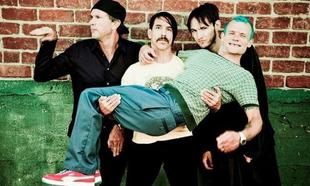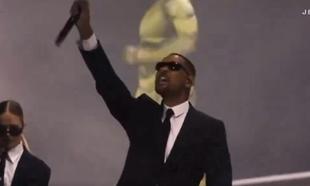Just to prove that it's what you know and not who, if having a brother in Snow Patrol counted for something, Paul Archer would be fast-tracking his way through the music business on the basis of his three albums under the name Burning Codes. Instead, he's taking the tried-and-trusted approach of sticking to making good music and hoping to get ahead based on the merit of his own work.
While there are elements of Snow Patrol's sound in the third Burning Codes album,Rivers Of Hope, it's more as if Archer's indulging in the leeway afforded to having a famous brother rather than attempting to mimic his success. Despite depending on catchy vocals as the main strength, Burning Codes have a distinctly alternative edge, employing unusual methods to lift the album beyond the generally-pleasant domain of singalong indie rock. There's a philosophical slant to the lyrics and an explorative manner that implies this artist wants to traverse some new ground, find a solitary path that will appeal to many without compromise.
Rivers of Hope is strongest in its first section of six songs: We Are Like Gold is the opening track, a low guitar drone and simple, heavy drum beat leading the way, which allows for contrast with lovely high notes that add a bright flavour, and this seems to be a style that Archer is fond of, continuing the theme in Last Time, although the chorus is fantastically catchy and upbeat, a really perfect radio song at just over three minutes.
The huge, strident sound that seems to work for many notable indie bands is used in Switch and is done well, yet the device that seems to work best for Burning Codes is the application of deep, intuitive percussion to offset a strong voice. In this respect Rivers Of Hope is the finest point of the album, almost a churchless canticle in its soaring, reverbating vocal and is so distinctive, seems a pure signifier of Burning Codes' ideal sound.
Our One Desire is a low-key acoustic number in which the listener is given some respite from the expansive vocal and percussion combo, strumming its way softly to the midway-mark. It seems incongrous at first but is almost like acclimatisation, for the next song that follows is The Ladder, another soft number with a sedate pace, using subtle keys, a lovely rich bass and snappy drums to add an extra depth and variety to what came before.?The reason for the change of direction becomes apparent in the big, lairy Only Gone. If it had come at any other point in the album it would have been vocal overkill for this is the point at which Archer really lets rip and gives it socks with his voice. And while this reviewer would normally give a hearty 'pah!' to vocal gymnastics, in context it works perfectly. Such a bawling, rousing tune, it brings to mind a vast expanse of space to fill, like a song for singing alone in the middle of the Australian outback or stuck in motorway traffic, hands drumming on a steering wheel, head dropping with the guitar before the gutsy bellows catch up once more. It's a phenomenal song that will be loved or hated and I for one am delighted to enjoy something a little different.
Things tail off after that heady barrage and New Ground is a softly anti-climatic follow-up, led by guitar and a less vociferous vocal that unfortunately never quite picks up its feet. The Eighties tinge to A Lifetime works quite well and at this point marks itself out as a distinctive Burning Codes song, nicely cushioned by piano and palliative drums. A bit too nice, it would have been improved by switching places with New Ground, seeming to jar with the adjacent, final track The Wild. This is the rawest, most edgy tune, using echo and a buzzy, sharp guitar and thick bass, rich and slightly feral. It's quite a surprising finale for the listener who at this point has been conditioned to the range of Paul Archer's vocals, but it is a fitting finish and very enjoyable point at which to bid adieu.
Not likely to please everyone, Rivers of Hope is a work for Burning Codes to stand proudly aligned with, although brash at times, its sparing flashes of genuinely interesting and edgy sound hint that there may be more, better work to come. We can but hope.









































































